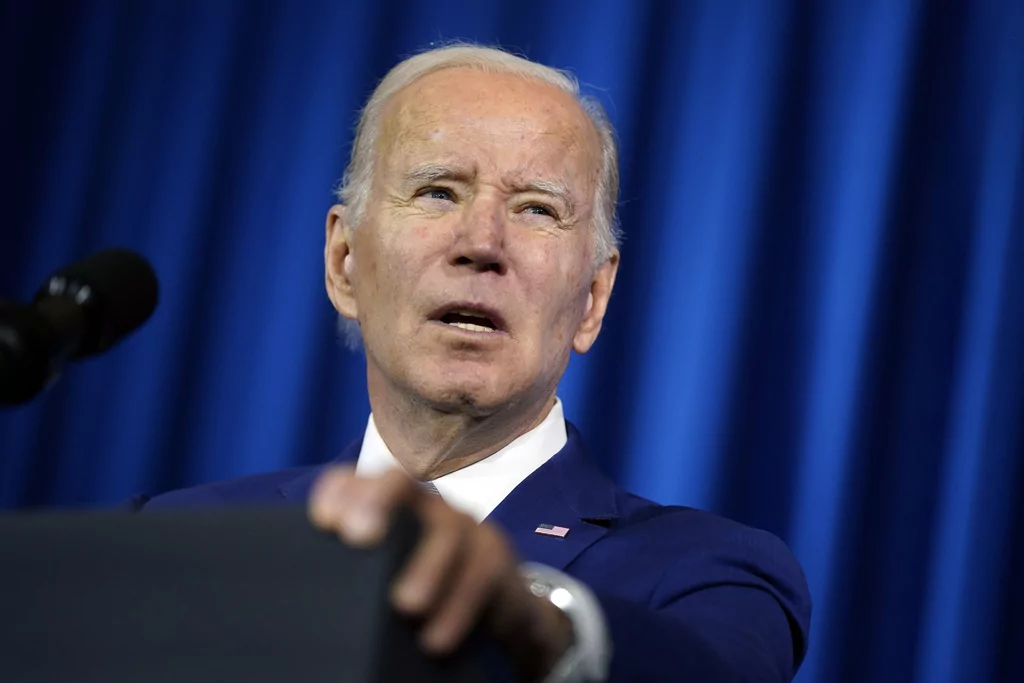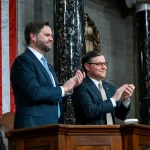

With a little less than four months left in his presidency, Joe Biden is seeking to solidify his legacy.
Fresh off a vacation in his home state of Delaware, Biden spent the last few weeks traveling to states such as Wisconsin and Michigan, touting his work in creating manufacturing jobs, strengthening labor unions, and building greater infrastructure.
Biden has specifically touted the Inflation Reduction Act, which aims to lower prescription drug prices, invest in domestic energy production, and enact tax reform, and his Investing in America agenda, which has sought to back the nation’s infrastructure and bring back manufacturing jobs.
His administration has invested nearly $1 trillion in manufacturing and green industries across the Rust Belt. On Friday, September 6, he noted while in Ann Arbor, Michigan, that 142,000 jobs were added just in August.
“We’re seeing the great American comeback story,” he said.
The White House attributes nearly 16 million jobs to the creation of the Investing in America agenda and notes that the Biden administration has the lowest average unemployment rate of any administration in 50 years.
However, inflation has been a grave issue for the Biden administration. Prices were up nearly 20% in May from when Biden took office, and while inflation has softened, consumers are still frustrated over prices for goods, such as groceries.
Biden has sought to make a difference in other areas during his presidency, though with mixed results. The president’s student loan debt elimination plan has been one of his biggest plans since taking office. While the Supreme Court ruled in June 2023 that Biden’s attempt to cancel $400 billion in student debt without congressional approval was unconstitutional, the administration has been able to work around the court’s ruling, having forgiven $168.5 billion in student debt. The Biden administration is looking to forgive more debt through its SAVE plan, which has been blocked.
Biden has also faced problems on the international stage. The withdrawal from Afghanistan led to the deaths of 13 U.S. servicemembers, and wars in Ukraine and Gaza have ignited differences in Washington, D.C. With little time to do so, the president is trying to define his efforts across the globe.
On Friday, Biden met with Great Britain’s Prime Minister Keir Starmer, where they discussed the possibility of loosening the United States’s weapons restrictions on Ukraine as Russia received short-range ballistic measures from Iran.
Biden said to reporters before the meeting that he wanted to make “clear that Putin will not prevail in this war.”
White House national security spokesman John Kirby said that Iran’s newfound partnership with Russia is concerning that it “now reaches well beyond the Middle East.”
Being able to secure a ceasefire in Gaza has been something the Biden administration has been negotiating all summer long.
The Biden administration‘s stance on the Israel-Hamas war has garnered criticism from members of his own political party, leading to mass protests and over 100,000 Michiganders voting uncommitted in the state’s primary election because the U.S. continues to send arms to Israel. However, Biden’s infrequent criticism of Israel to do more to get a ceasefire deal done has also upset pro-Israel congressional Democrats, as well as Republicans.
The chances of Israel and Hamas securing a ceasefire and hostage deal during his final months in office could be slim after Hamas made a new demand and upended the previous proposal. There is concern that the war in Gaza could escalate into a broader regional war that would forever be associated with Biden’s presidency.
Over the next few months, Biden plans to travel to Germany, sub-Saharan Africa, Peru, and Brazil for the G20 summit, where he could meet with Chinese President Xi Jinping.
CLICK HERE TO READ MORE FROM THE WASHINGTON EXAMINER
While Biden surely has his legacy top of mind, he also hopes to create a good climate for Vice President Kamala Harris to inherit if she were to win the White House.
While Biden has been sparing in his campaign appearances for Harris, his stops in places such as Wisconsin and Michigan are meant to appeal to what has traditionally been his base: labor workers and older voters.





